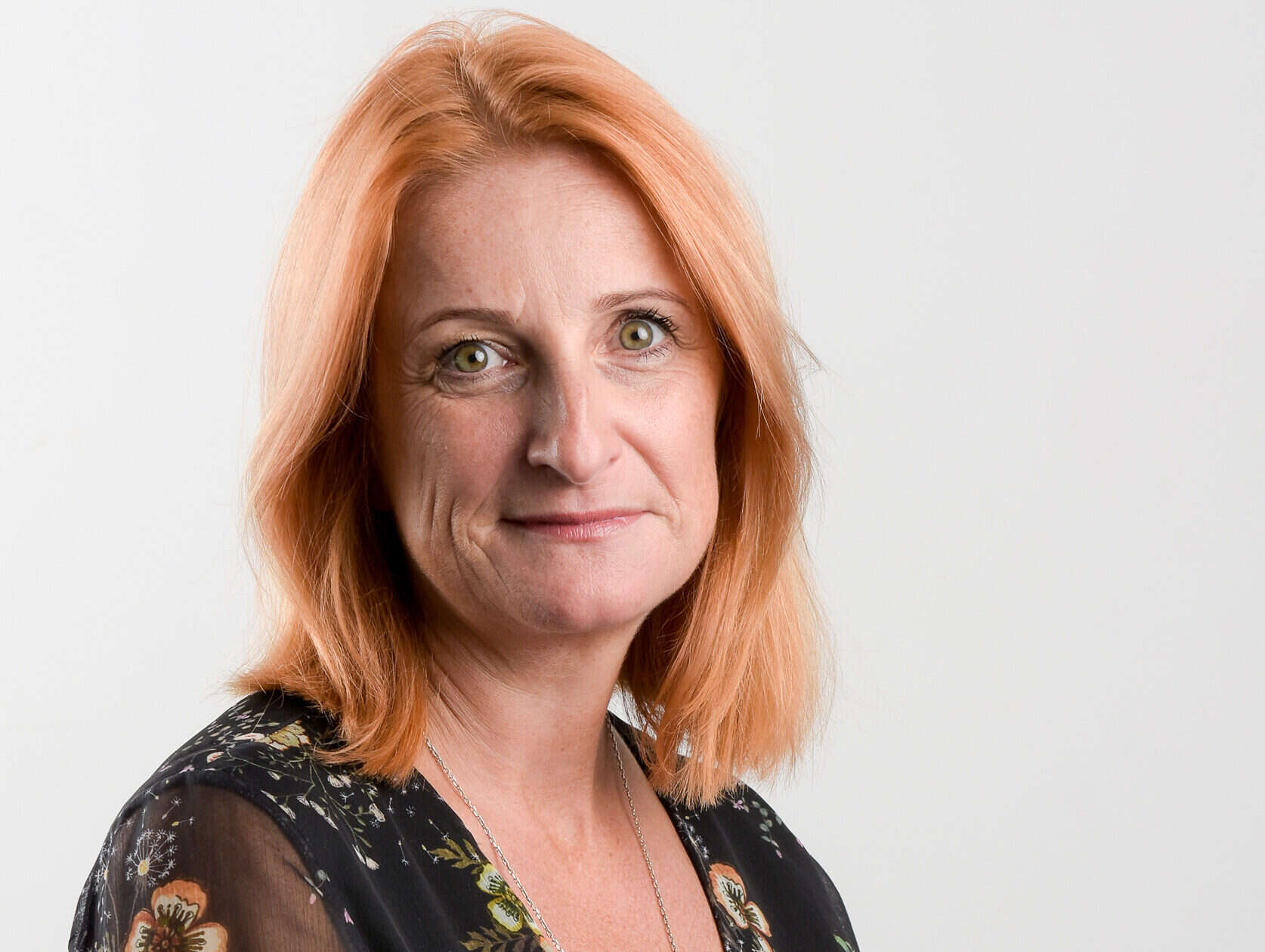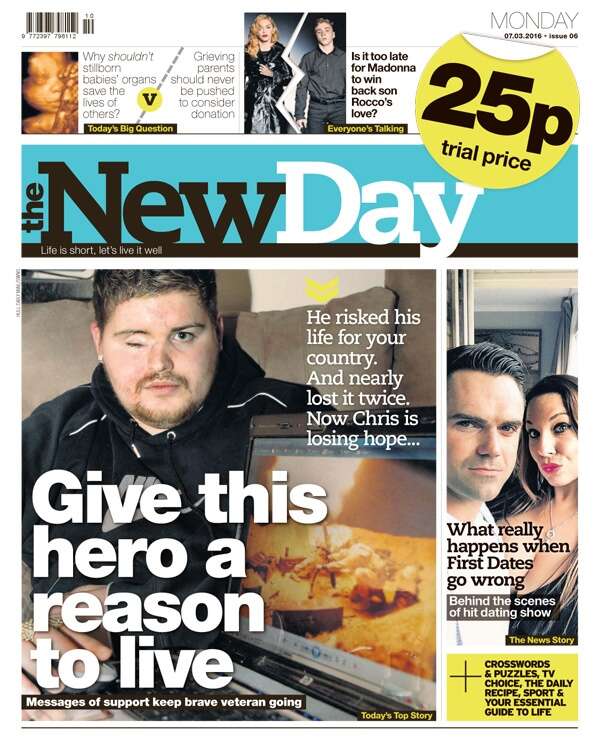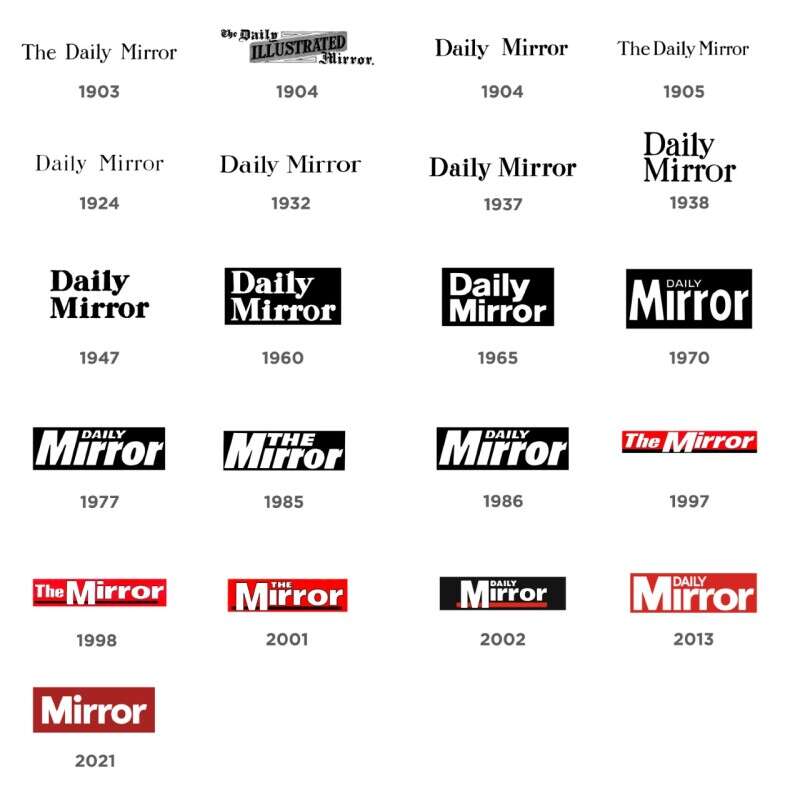
“If it bleeds, it leads” is a typically blunt journalistic aphorism (hackism?) that can still be heard in newsrooms across the UK. The point is that bad news sells. Crime trumps charity.
But Alison Phillips (pictured), editor of the Daily Mirror, isn’t so convinced.
She’s launched the Mirror More Hopeful manifesto, making a “commitment to report more hopeful news” at the title, in print and online. A newsletter dedicated to the stuff is already being pushed out once a week.
“It’s not just about writing happy-clappy stories – although I do think it’s important that we tell stories of hopefulness and positivity as much as more negative stories,” Phillips tells me.
“It’s also about within even the most difficult stories… looking beneath the surface at, okay, where could there be some seeds of positivity? So on a topic like Covid or racism in football, it’s looking at what are the potential solutions that could… make this a better situation.
“That might be looking at how something’s done abroad or in certain communities. A lot of it is about giving people the belief things can be better – and giving them the tools with which they can help make things better.”
She adds: “Obviously, we’re still going to do major crises and disasters and political scandals and all of that, of course we’re going to do that, but we have to ensure that we’re doing other stuff as well.”
Phillips says journalists are “trained to seek out the darkness” and suggests “bad news is easier to do” than good news, but this puts professional newsgatherers at odds with people in the “real world” who are turning away from the “relentlessness of bad news”.
“You could never have a newspaper that’s just full of bad news because, crikey, you’d just depress the hell out everybody and they’d never come back the next day,” she says. The same goes for a website homepage.
‘Believing in social justice is something we should be very proud of’
The Mirror is also tapping into a more socially conscientious attitude prevalent among the young which Phillips says suits the brand.
“Sometimes in the past The Mirror was almost a little bit apologetic that we weren’t as aggressive or brash as perhaps some of our competitors were,” she says.
“Whereas now I think the fact that our brand values are compassionate and big-hearted and fair and believing in social justice is something we should be very proud of.
“A, because it’s the right thing to do, and B, I actually think there’s a market for that in the news media at the moment. I think particularly among a lot of younger digital readers, they want to see that a newsbrand has those sort of beliefs.”
And the data that now feeds into newsroom decisions is backing her up. “…Because you can see traffic against any particular story at any particular time, we have the data which shows that positive and hopeful news does get traction – readers do like it, it does get engagement,” she says.
The New Day was ‘an unmitigated disaster’
But the Mirror group has tried pushing back against the received wisdom that bad news sells before, and without much success.
Print newspaper The New Day launched in February 2016 with a pledge to provide a “glass-half-full outlook” on life. With Phillips in the editor’s chair, the title was pitched at mid-market female readers who were turned off by too much bad news. It closed just over two months later.

“I will be the first to hold my hands up [and say] that was an unmitigated disaster,” says Phillips of The New Day.
[Read more: Sympathy but no surprise as readers and pundits react to The New Day’s closure]
She says it was the medium of print, in particular, that did for the title. “I think if that had been a digital project it could have been loads more successful, because what it did have, even in this very short shelf life, was unbelievable levels of engagement with readers,” Phillips says.
“And I think that’s what hopefulness can give a newsbrand: a real sense of community.”
Phillips admits an online-only business model “would have been tricky around advertising” for The New Day, with a number of online-only titles struggling to make news pay, including Buzzfeed and Huffpost UK.
Did Phillips, who became Mirror editor in 2018, take any lessons away from the failed project?
“I think it’s very much about building the relationship with your readers. If you are a reader of the Mirror, be it digital or social or in print, you have to feel that you’re a member of a club, which is serviced with a daily newsfeed.
“Creating that sense of like-minded people coming together around a newsfeed is what you’re trying to achieve, because when you’ve got that you’ll keep them coming back.”
Still a ‘red top’ after muted masthead redesign?
The Mirror’s move towards more hopeful news coverage comes with a subtle redesign that has muted the once bright red of its masthead. The aim is to ensure brand consistency across print, digital and social.

Daily Mirror masthead changes through the years. Picture: Reach
I get the impression I’ve read too much into it when I suggest the change might be a conscious decision by the Mirror to move away from being a traditional “red top” tabloid.
“I think red-top tabloids are one of this country’s finest ever inventions really,” says Phillips, putting me straight. “The idea that you are bringing a bit of everything to an audience in a really bright, accessible, fun way. I think we are absolutely that [at the Mirror]…
“We are still very much red-top tabloid, but we are a warm red-top tabloid and that is our point of difference – and hopefully this very minor design change will emphasise that.”
‘I absolutely hate that word, ‘woke’’
I bring up the word “woke”, because a conscious move towards good news might prompt the label as part of the “culture wars” that are now a media staple.
“I absolutely hate that word, ‘woke’,” Phillips says.
“I am about as ‘unwoke’ as it’s possible to get. I’m very normal. I’ve got a very normal family and live in a very normal place in a normal bit of Essex. So I’m definitely not woke.
“What I do believe – and what I think a lot of our readers believe – is that you should treat people well, you should be polite, you should be kind, compassionate, you shouldn’t be rude, you shouldn’t be aggressive and you should listen to what people have got to say and try and put yourself in their shoes.”
She describes this as “proper, old-fashioned British values”. The word woke, she says, is being used as a means of closing down arguments and “othering” people with a different set of beliefs. “You’re saying that they’re stupid or wrong or too right-on and all the rest of it.
“So rather than just demonising people who have a set of beliefs, why not listen… and have a conversation about those beliefs. And if you don’t agree then you don’t agree, that’s absolutely fine. I think that’s a big problem with this country, we’ve all [lost] the ability just to disagree and move on.”
I suggest that these are precisely the arguments used by critics of “woke culture” – that it seeks to “cancel” those whose arguments don’t fit with its ideology and so stop them from reaching other people.
“I think the cancelling has gone on on both sides,” says Phillips. “It is cancelling to say to somebody: ‘That’s a ridiculous woke opinion you’ve got.’ You’re trying to shut that person down.
“Quite often we know that a lot of the people who are being demonised as being woke are people who, for generations, haven’t had the ability to tell their stories because society, the media, didn’t want to hear their stories or was structured in such a way that their voices weren’t heard.
“And so now these voices are being heard and they’re just being told to shut up again by being told that they’re woke… Our job as journalists is to make sure voices are heard.”
‘You can’t fill a Sunday paper with daily news’
The Daily Mirror had a circulation of more than 358,000 copies in June, according to ABC figures. The Sunday Mirror was close behind at more than 287,000 copies. The Sunday People – which Phillips says is not at risk of closure: “it’s numbers are really good, it’s still a great product” – puts out around 111,000 copies on average.
[Read more: Latest national press ABCs]
Both Sunday titles fall under the same editor, which since March has been Gemma Aldridge. While Phillips oversees all Mirror group titles, she says there is no plan to merge the daily and Sunday teams – “you can’t fill a Sunday paper with daily news, not if you want it to be interesting” – but increasingly specialist reporters are working across titles.
Mirror.co.uk had more than 93m visits in July, Similarweb figures show.
For Phillips, digital is equal with print in terms of focus and importance – the newsroom holds separate morning conferences for each – and while, just like with her three children, she doesn’t have a favourite, she is clearly more excited by the opportunities digital affords.
“The brilliant thing about digital is that this whole new audience is waiting for us to discover… the sky’s the limit really. And we know that there’s a lot of people who would like to read the Mirror that still aren’t yet reading the Mirror.
“We also want to encourage more people to come direct to our homepage, rather than reaching us through social. So there are lots of opportunities to really grow to make ourselves a very strong, compassionate newsbrand digitally.”
Dominic Cummings lockdown breach scoop: ‘We personally felt outraged that this had happened…’
The Mirror, together with The Guardian, scored arguably the biggest scoop of the pandemic with the revelation that Dominic Cummings, then special adviser to Prime Minister Boris Johnson, had breached lockdown restrictions in place at the time by travelling from London to Durham.
https://twitter.com/PippaCrerar/status/1263932550713610240?s=20
The story ran on Friday 22 May online and in print the following day. The Sunday Mirror and Observer followed it up that weekend, exposing Cummings’ now-infamous trip to Barnard Castle.
Something of a PR disaster for the Government, it led ultimately to Cummings’ exit from Number 10 six months later in November.
[Read more: Daily Mirror political editor Pippa Crerar says journalists must not let Govt brush Covid failures ‘under the carpet’]
Phillips tells the story behind the story, which won Scoop of the Year at the British Journalism Awards 2020: “Pippa [Crerar] our political editor, who’s just brilliant, had a tip very early on and had been working on it with Jeremy Armstrong, our North East reporter, who’s a veteran of the game.
“We had witnesses, but we’d been to Number 10 with the allegations and they just flatly denied it. We thought it was true, but we just didn’t have quite enough to get it over the line.
“And then Pippa made contact with the Guardian reporter [Matthew Weaver] who had a different witness, and they’d had it denied as well. So they didn’t have enough to get it over the line, we didn’t have enough to get it over the line, but together we did.
“And then it was quite late on a Friday afternoon that we finally got a statement from the police which proved that he [Cummings] had definitely been there…”
Phillips says the Mirror team, who were working from home at the time, “knew it was a big story, because we personally felt outraged that this had happened”, but “didn’t quite realise the implications it would have”.
“I think it was the first clear sign that you’ve got a Prime Minister who wasn’t in control, in that he didn’t seem to have the balls to get rid of Dominic Cummings at that point.
“Or there was this massive gulf between what the general public thought was acceptable and what people in power thought was acceptable, that we were still seeing right up until [recently] when Boris Johnson didn’t think he would have to self-isolate, which I still find quite staggering.
“I just don’t understand how they could be that out of touch with the general public.”
Trying to silence journalists is ‘quite sinister’
The Mirror has had a strained relationship with Number 10 under Johnson, which began when he kicked them off his election campaign battle bus back in late 2019, something Phillips describes as “really quite sinister”.
“It takes us back to this argument we were talking about earlier: everybody wanting to silence people they don’t like. They’d like to silence us by not letting us on that bus, they want to silence The Sun because of the Matt Hancock story, but silencing people doesn’t make them go away.”
Phillips applies the same thinking to the proposed reforms to the Official Secrets Act that could see journalists jailed as spies for reporting on sensitive government data.
“I don’t know whether they’re doing [it] unwittingly or wittingly, but there’s something quite sinister about trying to prevent journalism operating,” she says.
“They might think there’s a short-term benefit in trying to prevent us from doing our jobs and investigating and ensuring that stories that need to be told are told. They may think that, but they should be considering the long-term effects in a society where there isn’t a sense of transparency and we haven’t got a strong, independent press that can do its job properly.
“We have to have that and it’s in everybody’s interests.”
[Read more: Press Gazette’s submission to Government consultation on Official Secrets Act reforms]
Phillips says the Mirror’s relationship with the Government is now “definitely better than it was”.
On Society of Editors diversity row: ‘I think they really need to grasp that nettle’
Earlier this year The Mirror pulled out of the Society of Editors’ Press Awards over the trade body’s statement that the “UK media is not bigoted” in response to a claim made by Prince Harry. A number of editors disagreed with the Society’s position, calling for the industry to reflect on itself. The row lead to the SoE’s executive chairman being forced to stand down.
Last month more than 100 journalists of colour accused the Society in an open letter of only “offering a few crumbs” to appease those angered by its previous statements on diversity.
Does Phillips think the Society still has a future?
“I think it’s very difficult if they’ve lost the confidence of big chunks of journalists. This isn’t an issue that’s just going to go away. I think they really need to grasp that nettle.”
She says the body still has a “role to encourage and promote the idea of greater diversity” within the news industry, “not just talking about it” but having a view to “some kind of change” within a set time frame.
“They now need to really talk to people, to editors like myself, everybody who’s got a view on this, and come out with a clear stated aim as to what they’re going to do to help the industry, because it’s in the industry’s best interest. ”
Phillips is chair of Women in Journalism, a networking, campaigning and training organisation for female journalists in the UK and abroad. Her appointment comes at a time when there are more female editors of national newspapers than at any other time.
[Read more: More than third of UK national newspapers now edited by women in Fleet Street shake-up]
“Those numbers are fantastic,” says Phillips.
“But what we need to do is make sure that the better representation at editor level isn’t a flash in the pan and – and this is the difficult bit – to ensure that people at desk-head level, so that middle management level, are coming through for the next generation of editors, because we’re still not there and it’d be wrong to think we are.
“Things can always go backwards as well.
“I think the women editors in these positions at the moment, we all have a responsibility to the future, to ensure that we’re putting in place everything that we need to put in place so that we’re not the last.
“There’s no point us having got to this position to pull the ladder up. We’ve got to make it better for the people that come next.”
Philips says one of the big challenges for the news industry was keeping mothers in journalism, who often left staff jobs, went freelance or moved into PR after having children “because such were newsrooms”.
“Sometimes women have a really tough couple years when they’ve just had a baby, and just maybe having a bit of patience and finding a way that works until things are easier [is needed],” she says.
Picture: Reach
Email pged@pressgazette.co.uk to point out mistakes, provide story tips or send in a letter for publication on our "Letters Page" blog
